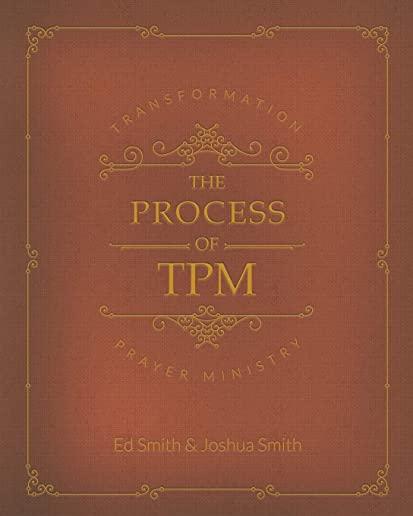
This book is the companion text to the book entitled The Essentials of TPM. These two books are the primary training resources of Transformation Prayer Ministry (TPM). Both books are necessary to fully understand and apply TPM. This book will provide an expansive view of what a ministry session should look like and the protocol used when you're in a ministry session. Whereas, The Essentials of TPM focuses primarily on the Purpose and Principles of TPM.
The foundational concepts discussed in The Essentials of TPM are vitally important in order for you to get the most out of what you will learn and be able to make Transformation Prayer Ministry a lifestyle and daily practice. As such, both you and those with whom you minister must understand them. Learning the process of TPM without a good understanding of the "essentials" may reduce the TPM Process to a pain management tool and thereby, forfeit the greater benefits this ministry offers. People who do not understand the purpose and principles of TPM will typically only seek ministry when their emotional pain becomes unmanageable.
The grander scope of TPM is comprised of what we refer to as the "Three "P's" (the Purpose, Principles, and Process of TPM). The Essentials of TPM focuses on the Purpose and Principles, while this book focuses primarily upon the third "P" or the "Process." The Process represents the protocol that should be followed in an authentic TPM session. Any variation from this protocol, either through addition, augmentation or reduction, becomes something other than TPM and therefore, should be called by some other name.
This TPM Process book will serve as a "field guide" for your future TPM sessions. It provides you with a working knowledge of how to apply the Process. What you learn here will equip you to locate where you are at any given moment in a ministry session. When you know where you are in the TPM Process, you should know exactly what to do next.
To fully understand TPM, you must include each of the Three P's together as a whole. Some people have mistakenly focused solely upon what happens in a ministry session or process, (which is the focus of this book) without fully grasping the complete scope of the ministry. This inevitably results in their coming up short, both in application and effectiveness. It is akin to a doctor learning how to wield a scalpel without first learning how the human body works.
member goods
listens & views

HISTORY OF 1900-1960 HITS IN ...
by HISTORY OF 1900-1960 HITS IN QUEBEC / VARIOUS
COMPACT DISC$28.49






